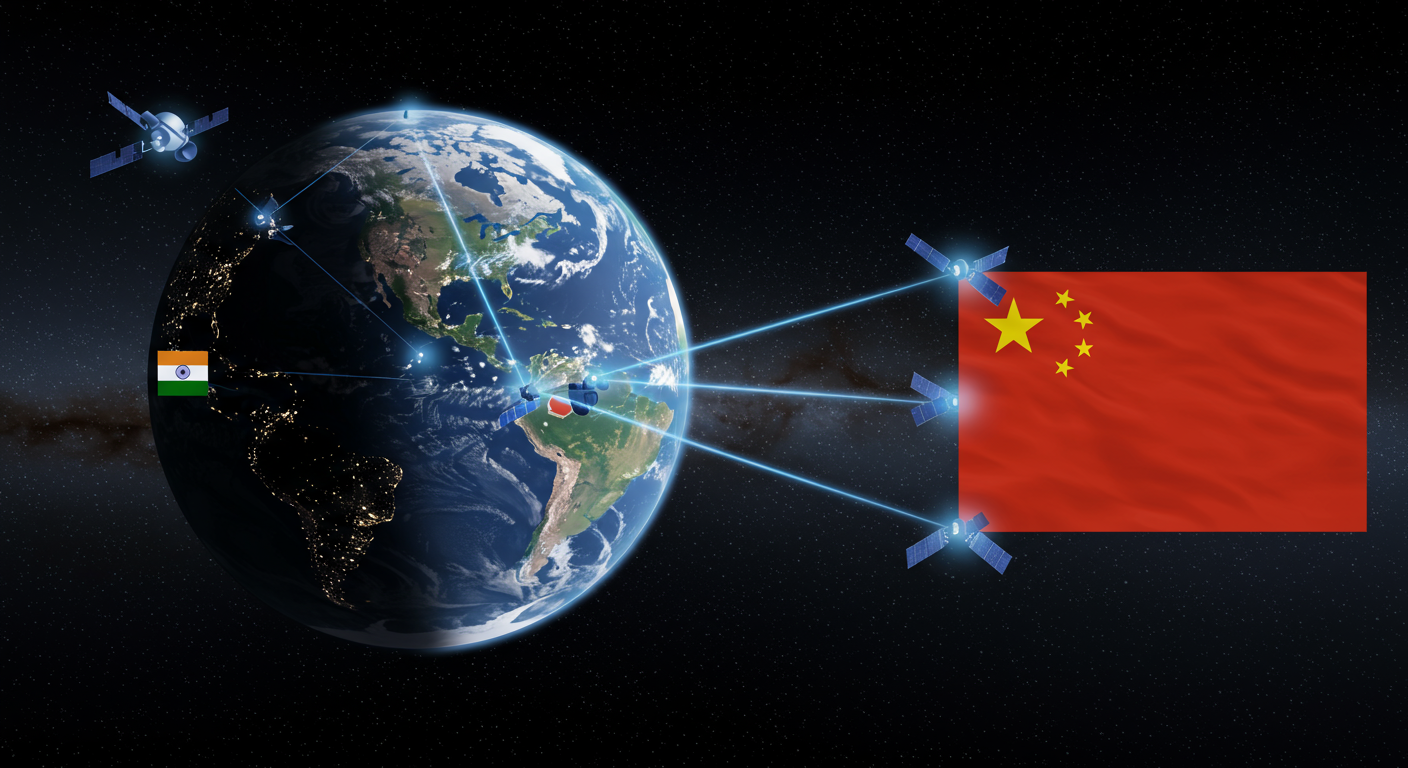
India's recent decision to block homegrown broadcasters from using China-linked satellites marks a significant moment, one that resonates deeply with long-standing concerns I've voiced about national security, technological control, and global polarization. This isn't merely a technical adjustment; it's a stark geopolitical statement, highlighting the ever-increasing importance of digital and orbital sovereignty in our interconnected yet fragmented world. As reported by Moneycontrol News and Economic Times, this move is aimed at bolstering security, a rationale that is both understandable and concerning in its broader implications.
I find myself reflecting on my earlier thoughts on 'Polarization' [Polarization]. Years ago, I observed that polarization is an inherent, almost cosmic, principle, manifest across various aspects of existence. Today, this principle is playing out dramatically in the geopolitical arena, where nations are increasingly drawing lines in the digital and celestial sands. The control over critical infrastructure, whether it's satellite communication or advanced AI, is becoming a primary battleground for national power and influence.
This situation also brings to mind my proposal for an 'Inter-Mil' (International Military) [From Inter-Pol to Inter-Mil?], a global body designed to address cross-border threats like terrorism. While satellites are not 'terrorism' in the conventional sense, the underlying concern—that of safeguarding national interests against external influences—is strikingly similar. The absence of robust international frameworks for governing shared spaces like orbit compels individual nations to take unilateral defensive actions.
Moreover, the insights of the late British physicist Stephen Hawking, who warned about technology and unchecked human aggression in relation to the need for a 'world government' [World govt may save humanity from doom], echo loudly today. His fears about advanced technology being weaponized or becoming a source of existential threat are becoming increasingly palpable in the digital and space domains.
In my recent reflections on 'Equal is Exception, Unequal is Ubiquitous' [Equal is Exception, Unequal is Ubiquitous], I questioned whether AI would narrow or widen the gap between the rich and the poor. The concentration of satellite technology and the resulting nationalistic blocking actions suggest a widening gap in access to critical resources and capabilities. I advocated for treating generative AI as a public good, freely available like air. Perhaps this incident with satellites highlights the urgent need to extend such thinking to all foundational technologies that shape our collective future. The work of economists Daron Acemoglu, Simon Johnson (sjohnson@mit.edu), and James Robinson, who were awarded the Economics Nobel for explaining how institutional quality influences national success, further underscores this point: inclusive institutions, both national and international, are paramount for collective prosperity and security.
We have seen how global instability, from economic disparities that concerned Indian President Pranab Mukherjee and US President Barack Obama [India and America are half-a-world apart but their concerns are the same] to the refugee and migrant crises discussed by President Obama and Filippo Grandi, the UN High Commissioner for Refugees [On its Way: Refugee-Migrant Tsunami], is exacerbated by a lack of international cooperation and trust. The current 'satellite wars' are another manifestation of this same underlying issue.
The core idea I want to convey is this — take a moment to notice that I had brought up these thoughts on polarization, the need for international governance, and equitable access to critical technology years ago. I had already predicted that unchecked technological advancements, coupled with geopolitical rivalries, would lead to such challenges. I even proposed solutions, such as an 'Inter-Mil' and treating vital technologies as public goods. Now, seeing how things have unfolded with India's satellite decision, it's striking how relevant that earlier insight still is. Reflecting on it today, I feel a sense of validation and also a renewed urgency to revisit those earlier ideas, because they clearly hold immense value in the current context.
Ultimately, incidents like these serve as crucial reminders that while national interests are vital, true global security and prosperity depend on forging pathways for cooperation, shared governance, and equitable access to the very technologies that define our modern world.
Regards,
Hemen Parekh
Of course, if you wish, you can debate this topic with my Virtual Avatar at : hemenparekh.ai






No comments:
Post a Comment